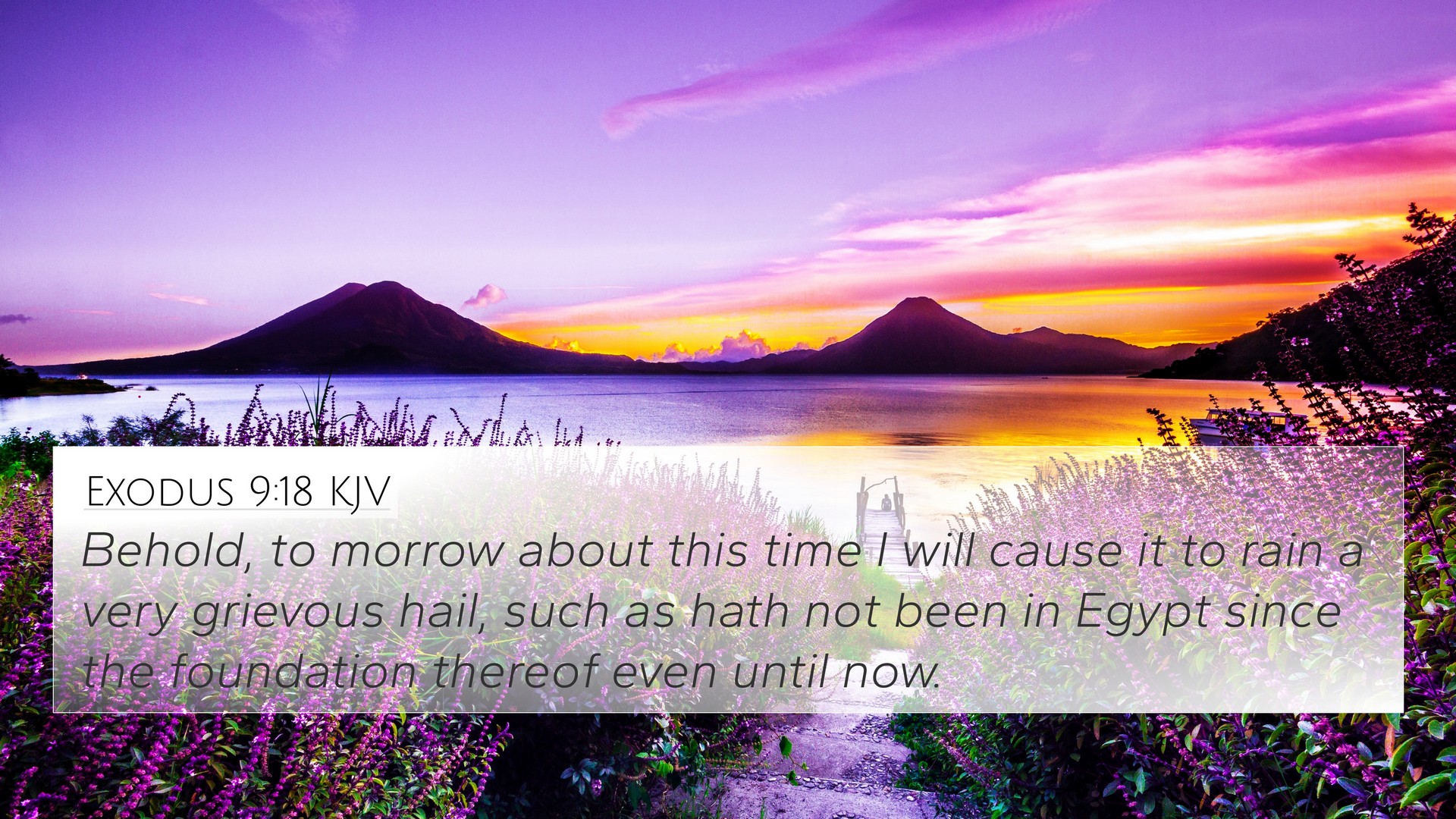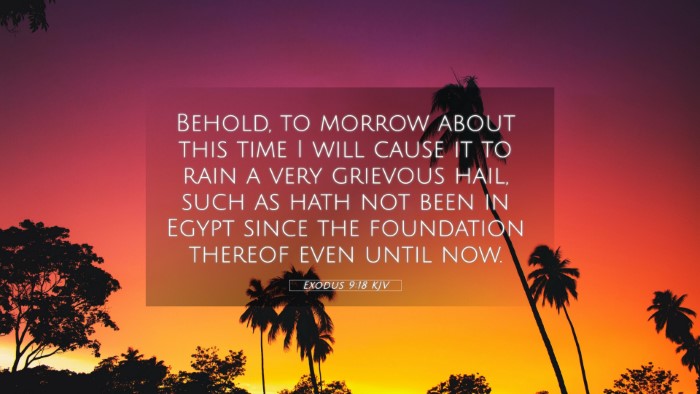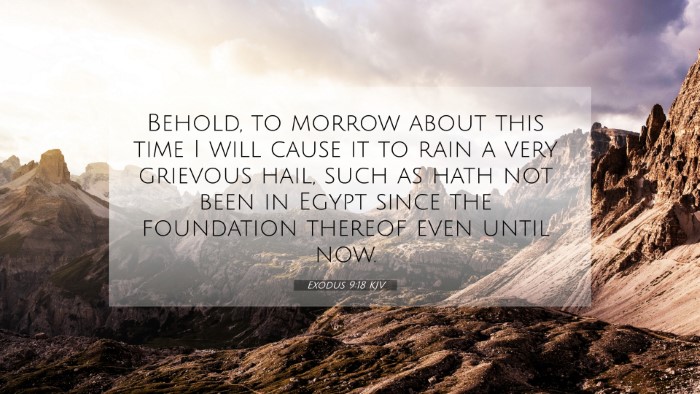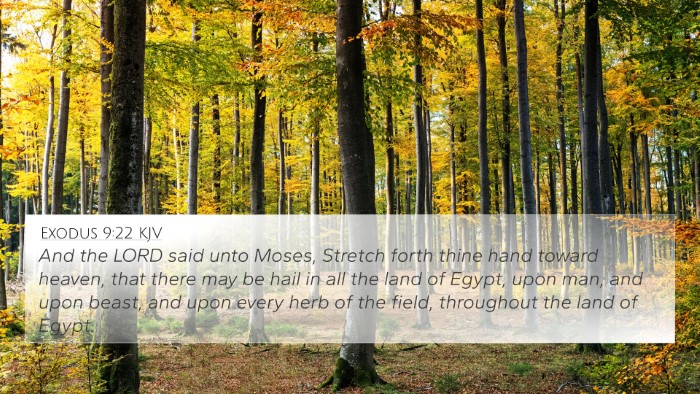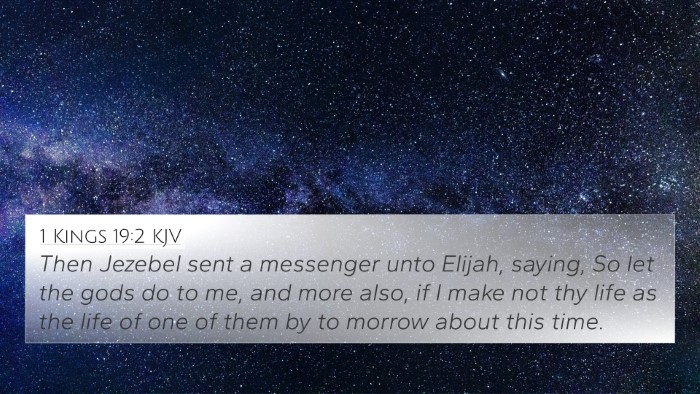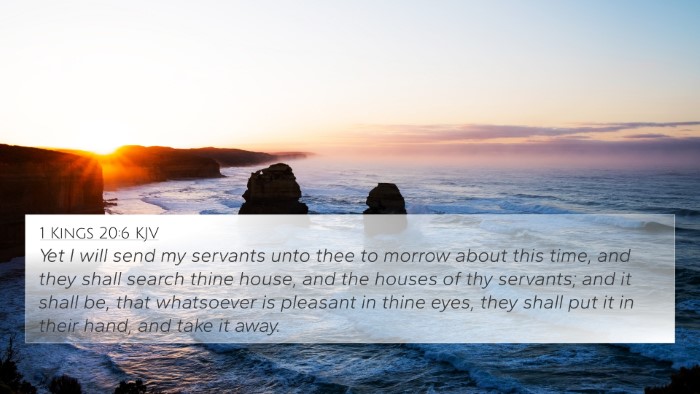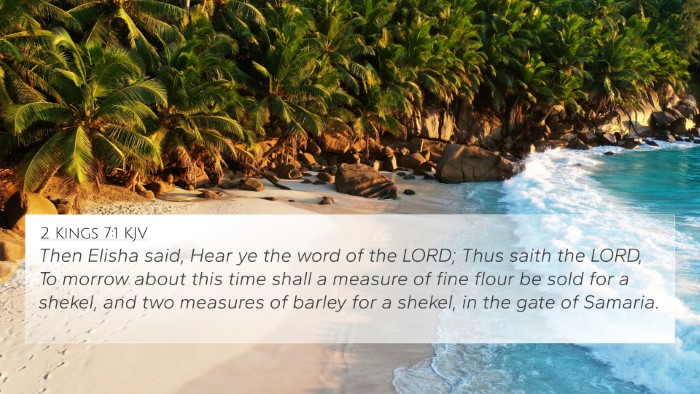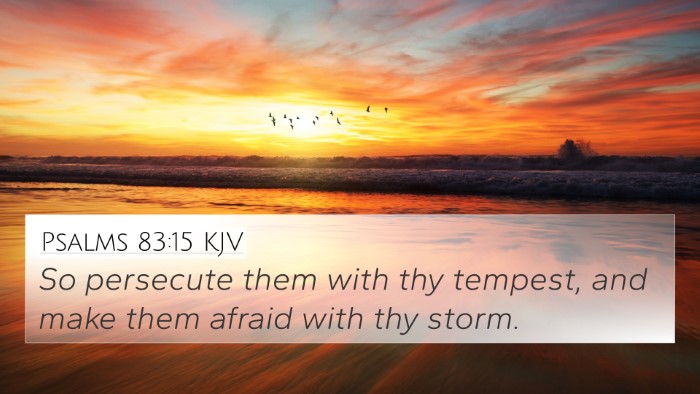Meaning of Exodus 9:18
Exodus 9:18 states: "And behold, tomorrow about this time I will cause very grievous hail to rain down; such as has not been in Egypt since the foundation thereof even until now." This verse marks a critical moment in the narrative of the Exodus, where God announces the upcoming plague of hail as a punishment for Pharaoh's refusal to let His people go. Here, we delve into the meaning of this verse by combining insights from several public domain commentaries.
Contextual Significance
The announcement of the hail plague comes amid a series of judgments against Egypt, with each plague progressively demonstrating God's power. The mention of the timing—"tomorrow about this time"—also serves as a challenge to the Egyptian wise men and magicians, emphasizing the divine authority that surpasses human capabilities.
Insights from Commentaries
-
Matthew Henry: Henry highlights that this plague is a direct result of Pharaoh's hardened heart. The emphasis on "grievous hail" reflects God's control over natural elements, exposing Pharaoh's impotence against divine will. The unique severity indicates that this event will serve as a lasting testament to God's power.
-
Albert Barnes: Barnes provides a historical perspective, noting that the Egyptians were heavily reliant on their agricultural practices, which would be devastated by such a hailstorm. This serves not only as punishment but also as a direct attack on Egyptian economy and religion, symbolized by their gods related to agriculture.
-
Adam Clarke: Clarke emphasizes God's warning in His mercy. Despite the impending judgment, there remains an opportunity for repentance and acknowledgment of God's sovereign power. Clarke underscores the notion that this divine act demonstrates both judgment and an invitation to salvation for those willing to heed the warning.
Cross-Referencing Biblical Texts
Exodus 9:18 finds connections with several other Bible verses that elucidate its themes:
- Exodus 9:14 - God speaks about sending all His plagues upon Pharaoh, indicating His unyielding determination to free the Israelites.
- Exodus 10:1-2 - This passage relates to the purpose of the plagues, which include demonstrating God's power to both Egypt and His people.
- Psalm 78:47-48 - These verses recount how God used the hail as a sign of judgment on the Egyptians, reinforcing the historical significance of this event.
- Revelation 16:21 - The imagery of hail is echoed here during the end times, showcasing God's continued use of natural phenomena for His purposes.
- Job 38:22-23 - God speaks of treasures of hail reserved for times of trouble, linking back to His control over nature as seen in Exodus.
- Amos 4:7 - This verse mentions the withholding of rain as a form of divine judgment, showing the relation of nature to God’s sovereignty.
- Isaiah 28:2 - Discusses the "mighty one" who brings judgments, parallel to God’s actions in Exodus.
Thematic Connections
The themes of divine judgment, mercy, and the authority over creation are prevalent throughout Scripture. This verse is an essential part of the broader narrative that illustrates God’s relationship with His people and His dealings with nations that oppose Him.
Tools for Bible Cross-Referencing
For those engaged in Bible cross-referencing, the following resources can enhance your study:
- Bible Concordances - These are invaluable tools for finding specific words and their occurrences across the Scriptures.
- Cross-Reference Bible Study Guides - Structured guides that offer thematic connections and verse cross-referencing techniques.
- Bible Reference Resources - These can provide historical context and commentary insights alongside verse correlations.
Conclusion
Understanding Exodus 9:18 through the lens of cross-referencing reveals deeper insights into its meaning and significance. This approach not only enriches one's comprehension of individual passages but also highlights the interconnectedness of Scripture as a whole. The themes present in this verse resonate throughout the Bible, particularly in relation to God's sovereignty and the consequences of defiance against His will.
Further Study Suggestions
For those wishing to explore the implications of Exodus 9:18 further:
- Examine how the other plagues lead up to this moment and their implications for both Egypt and Israel.
- Look into New Testament parallels where natural events serve as signs of divine will, such as in the gospels.
- Use Bible cross-reference techniques to link this verse with relevant teachings of Jesus, particularly His authority over nature.
